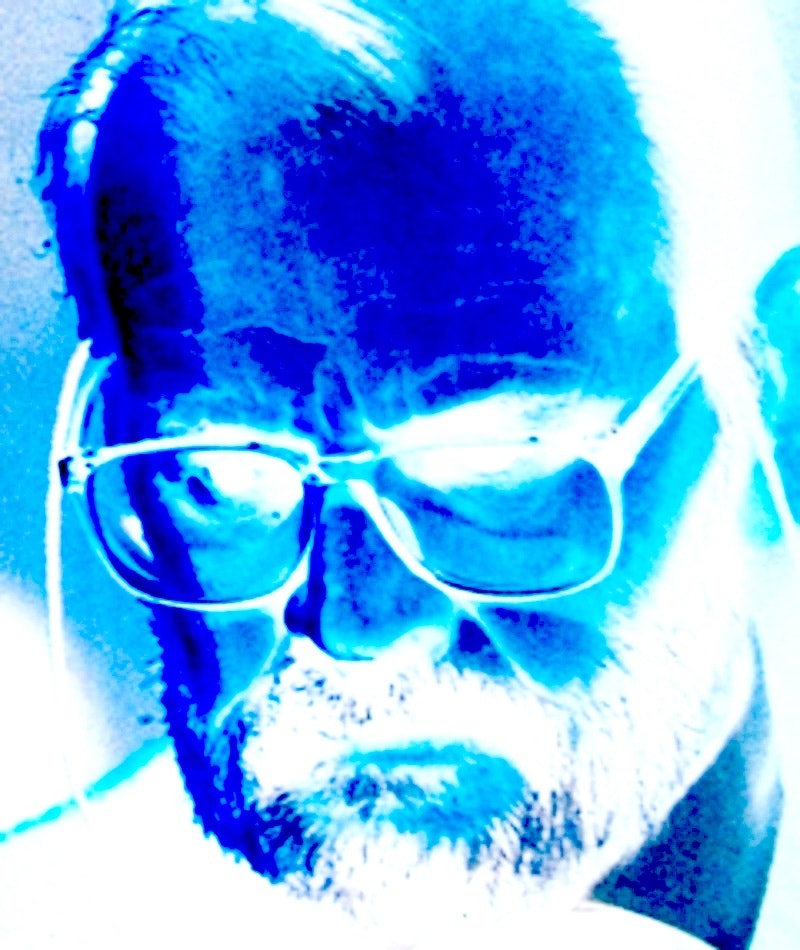Unlike the wide open spaces of most open-plan convention centers, the Hotel Pennsylvania in Midtown Manhattan was cluttered and divided into dozens upon dozens of tiny rooms. Across the street from Madison Square Garden, Enzo B. Bucci and his manager Giuseppe wandered into the nearly empty hotel and went up to the concierge. Enzo reached the desk, said nothing, and waited for Giuseppe to do everything for him. “Ah! How-are-you? We are Italians!” The receptionist nodded. “I can see that.” Giuseppe put his wallet, stuffed with receipts and used napkins, onto the counter. “We are here for the convention.” The receptionist pointed to a hallway. “Wonderful, we have all Fangoria attendees set up in the—” Enzo started whining like a stuck pig. They both looked at him like he was seriously ill, but he just shrugged and silently asked Giuseppe to continue doing everything for him.
“We are not attendees, we are guests. Has the convention started yet?” The receptionist started typing very fast on her Dell. She looked up at Enzo and Giuseppe. “Yes. Seven hours ago.” Enzo fell to the floor and Giuseppe and the receptionist rushed to recover him. Enzo looked up at his old friend, and this beautiful young American woman, and somehow found the will to live another day. He would go through with this cattle call and earn his pay for the weekend. Fangoria was nice enough to pay for his hotel and his appearance—he never read the magazine, nor even heard of it, but they liked him, so he liked them. Probably.
A bellboy escorted Enzo and Giuseppe to their rooms… on the second floor. “What is this? What is this? Why? Why? Why am I always the enemy? Why am I always being undermined by everyone around me? Everyone is against me… I can’t wait to die… then all of this will be over… you can all have fun… I just want to rest… I just want rest… I am so tired…” Giuseppe reminded Enzo that his room had a bath, minibar, and cable television (“With HBO?” “Yes, maestro”), and the director was back on his feet in no time. Giuseppe took a slightly smaller room down the hall, and while he was unpacking and going over the room service menu (paltry), Enzo was enjoying a nice hot bath.
He never knew they could put televisions in the bath—but there he was, watching The Larry Sanders Show in the tub. It was the end of the episode, and by chance, one of Enzo’s own films was up next: Banana Law. Although still known most widely today as a director of horror and genre films, Enzo’s real interest, like all Italian filmmakers of his generation, was politics. He was a massive fan of Sidney Lumet, John Frankenheimer, and even Stanley Kramer. One year at Cannes, sometime in the mid-1980s, Enzo got into a major fight with Jean-Luc Godard over the merits of Kramer’s Judgment at Nuremberg. All Godard could say was “non-authentic,” and Enzo could barely keep himself from throttling a director he could never stand anyway. They did get physical, but Enzo and Godard’s fight was overshadowed in the news later that day when a protestor offended by Godard’s Hail Mary ran up and shoved a banana cream pie in his face.
Banana Law was just as much fun as Enzo remembered: a Franco-Italian co-production, he got to work with major stars like Michel Piccoli, Michael Lonsdale, Bulle Ogier, and Hanna Schygulla. Banana Law shot in January 1983, less than a year after the death of Rainer Werner Fassbinder. The “Mad Bavarian” cast a long shadow, and with Schygulla in the mix, Enzo felt pressured to live up to the late great boy genius. He always knew Fassbinder was a political neophyte, a self-described “anarchist” who eventually threw up his hands and wrote “I MAKE FILMS, NOT BOMBS” on a poster for one of his later movies in 1979. Enzo, like Pier Paolo Pasolini, was a committed leftist, and indeed, a communist, though “the c-word” was never uttered outside of Italy.
As he watched this, the one film of his that gained some attention and acclaim outside of his usual sicko circles, he thought of all the men, women, and children who worked on that set, a movie about a renegade commune intent on building their anarchist utopia in the middle of Morocco. Watching this fine picture play before him in the bath, Enzo forgot about all the bitterness and resentment towards people like Elaine May (for stealing the premise of Banana Law and reconfiguring it for Ishtar); Hanna Schygulla (whom he told could “fuck off and die” when she told him he was Fassbinder); and Bulle Ogier, who refused to take direction from a “vagrant” like Enzo. Everyone was still alive in 1996—still alive and working. So would Enzo in a couple hours. But at that moment, he was just enjoying a movie he made many years ago, lying in a warm bath in the Hotel Pennsylvania, one night in New York City, January 1996.
—Follow Monica Quibbits on Twitter: @MonicaQuibbits

